Dachau
Отто Ран и Катары: между тайной и мошенничеством
Нашли ли нацисты чашу Грааля? Этот весьма каверзный и, казалось бы, праздный вопрос, однако, всерьез и весьма живо интересовал немецкий народ во время гитлеровского господства. Загадочная археологическая экспедиция, финансированная Третьим рейхом, отправилась на поиски драгоценного полумифического предмета во Францию, которую вскоре после этого оккупировали немцы – а точнее, в то самое место, на которое много веков назад пала легендарная тень катаров. Что же представлял из себя этот «исторический похода на самом деле?
Многие из тех, кто собирается углубиться в историю катаров, самой распространенной и жестоко подавленной ереси средневековой Европы, изучив источники этой подлинной религиозной революции, развернувшейся в Аквитании и на севере Италии, рано или поздно наткнутся на книгу, которая стала уже почти классикой для тех, кто изучает средневековье: «Крестовый поход за Граалем» немца Отто Рана.
Индиана Джонс был нацистом
1 июля Генри «Индиане» Джонсу исполняется 110 лет. У его прототипа тоже юбилей. Только реальному персонажу, чья судьба отразилась в приключениях Индианы, 105 лет. В отличие от своего бравого американского двойника реальный человек был немецким археологом. Звали его Отто Ран. Оказывается, Отто служил в СС и даже получил звание обершарфюрера.
Очки главы СС Генриха Гиммлера поблескивали.
– Абсолютные сила и власть? –переспросил он.
– Все верно, – ответил археолог Отто Ран. – Вообще я склоняюсь к мысли, что Грааль – это скорее идея. Но источники указывают, что Граалем назывался магический предмет, который дарил владельцу безграничные возможности.
– И его можно найти?
Отто Ран в Википедии
Отто Вильгельм Ран (нем. Otto Wilhelm Rahn (18 февраля 1904, Михельштадт — 13 или 14 марта 1939, гора Куфштайн близ городка Куфштайн, Тирольские Альпы, Австрия) — немецкий писатель и исследователь, археолог-любитель, сотрудник Аненербе, оберштурмфюрер СС.
Otto Rahn in Wikipedia
Otto Wilhelm Rahn (February 18, 1904—March 13, 1939) was a German medievalist and a Obersturmführer (First Lieutenant) of the SS, born in Michelstadt, Germany.
Speculation still swirls around Otto Rahn and his research. From an early age, he became interested in the legends of Parsifal, Holy Grail, Lohengrin, and the Nibelungenlied. While attending the University of Giessen he was inspired by his professor, the Baron von Gall, to study the Albigensian (Catharism) movement, and the massacre that occurred at Montségur. Rahn is quoted as saying that "It was a subject that completely captivated me''".
Work
The original Indiana Jones: Otto Rahn and the temple of doom
As Indiana Jones returns to our screens, John Preston looks at the Nazi archaeologist who inspired Spielberg's hero, and finds a story more bizarre than anything the director could have dreamt of
Very little is certain in the short life of Otto Rahn. But one of the few things one can with any confidence say about him is that he looked nothing like Harrison Ford. Yet Rahn, small and weasel-faced, with a hesitant, toothy smile and hair like a neatly contoured oil slick, undoubtedly served as inspiration for Ford's most famous role, Indiana Jones.
Like Jones, Rahn was an archaeologist, like him he fell foul of the Nazis and like him he was obsessed with finding the Holy Grail - the cup reputedly used to catch Christ's blood when he was crucified. But whereas Jones rode the Grail-train to box-office glory, Rahn's obsession ended up costing him his life.
Otto Rahn Bio
Berlin between the wars was a city known throughout Europe for its bohemian subculture of young intellectuals. Amongst the personalities who hotly debated the many modernist “isms” that were fracturing the old ideological certainties that had glued together the 19th century, few individuals were more colorful or conspicuous than a febrile dark-haired, green-eyed young man called Otto Wilhelm Rahn.
Rahn was welcomed in the cafes and nightclubs of 1930’s Berlin because he was a hyper-intense intellectual – a brilliant talker with a great deal to say but he was also a conspicuous outsider in that he was unfashionably dismissive of the emergent modernism that so excited his peers. Moreover, he had even less empathy with the cynicism and decadence that colored there lifestyle. Rather, like that of most Germans outside of Berlin, Rahn’s sensibility had been molded by influences wholly incompatible with the café society avante-garde.
Отто Ран и сокровища альбигойцев
В Третьем рейхе был еще один человек, который выбрал целью своей жизни поиски Святого Грааля. Однако если для Гитлера священная чаша оставалась мистическим символом, этот исторический персонаж подошел к теме как прагматик - он был убежден, что Грааль существует на самом деле и его вполне можно отыскать и потрогать руками. Речь идет об Отто Ране, историке-самоучке и "черном" археологе. Он утверждал, что Святой Грааль необходимо искать среди сокровищ альбигойцев. АЛЬБИГОЙЦЫ (лат. albigenses) - еретическая секта, ветвь секты катаров. Существовала в Южной Франции (провинция Лангедок). Свое название получила от области Альбижуа. Впервые термин "альбигойцы" появился в 1181 году.
Otto Rahn (Dutch)
Otto Rahn werd geboren in Michelstadt (Odenwald) op 18 februari 1904. Na zijn middelbare studies (en de eerste wereldoorlog) trekt hij naar de universiteit waar hij aanvankelijk rechten studeert. Maar al spoedig gaat zijn belangstelling uit naar de literatuur en laat hij zich inschrijven aan de faculteit der letteren in Heidelberg. Zijn droom is literair recensent te worden voor een krant of tijdschrift.
Als muziekliefhebber dweept hij met Wagner. Diens "Parsifal" brengt hem in contact met de graallegenden en hun Duitse auteur Wolfram von Eschenbach. Die studie zal hem nooit meer loslaten.
Otto Rahn Biography
CHRONOLOGY 1904-1939
18 Feb 1904 Otto Rahn born, Michelstadt. Parents Karl & Clara (nee Hamburger)
1910-1916 Junior school at Bigen
1916-21 Secondary school at GrieBen
1922 obtains Baccalaureat
1924 obtains Bachelor in Philology and History
1930 Rahn begins his European travels (Paris, Provence, Switzerland,
Catalonia, Italy)
1931 Rahn visits French Pyrenees. Visits "Spion" in Pyrenees with Himmler and Abetz
1932 Rahn leads a Polaires expedition in Pyrenees
13.12.33 Rahn joins the German Writers Association
1934 publishes "Kreuzzug gegen Gral" (Crusade against the Grail)
1935 appointed to personal staff of Heinrich Himmler
29.2.36 Rahn joins Allgemeine-SS, member 276 208
1936 Rahn visits Iceland with 20 men
1937 publishes "Luzifers Hofgesind. Eine Reise zu denguten Gelstern Europa" (Lucifer's Court in Europe; Rahn sent back to Languedoc (Montsegur), says he will return in 1939. Time of alleged Corbieres visit?
20.4.37 promoted to sub-lieutenant (Untersturmfuhrer)
Sep-Dec1937 military service for "disciplinary reasons" at Oberbayern Regiment, Dachau<
Rumors around the Otto Rahn death
Initially it was stated that the cause of Rahn's death was either "exposure" or "pneumonia", notwithstanding the fact that he was young and vigorous and an experienced mountain climber who had once spent an entire snowbound winter in the Alps.
A subsequent account of Rahn's demise related that he drank a bottle of rum, fell asleep in the snow and froze to death while climbing a mountain known as the "Wilde Kaiser". (Die Welt Newspaper, May 1:t, 1979)
Later rumors claimed that Rahn had committed suicide by swallowing a cyanide capsule while on the mountain.
Another report by Gerard de Sede ("The Treasure of the Cathari", 1966) postulates that Rahn did not die on a mountain top in 1939, but was arrested and imprisoned in solitary confinement at the Dachau concentration camp. He was beheaded in 1945 just before the compound was liberated by American forces.


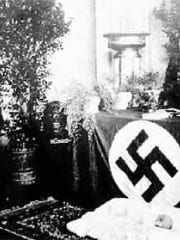



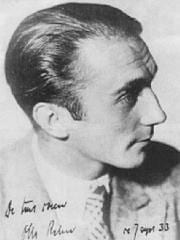
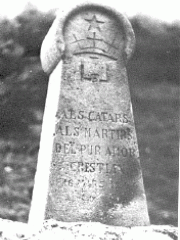
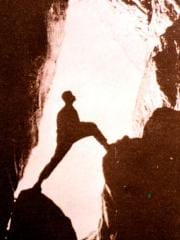
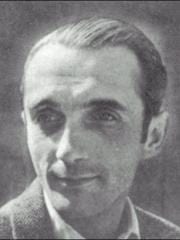
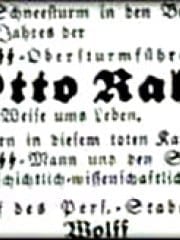
Neueste Kommentare
vor 13 Jahre 47 Wochen
vor 13 Jahre 47 Wochen
vor 13 Jahre 48 Wochen
vor 13 Jahre 48 Wochen
vor 13 Jahre 51 Wochen
vor 14 Jahre 5 Wochen